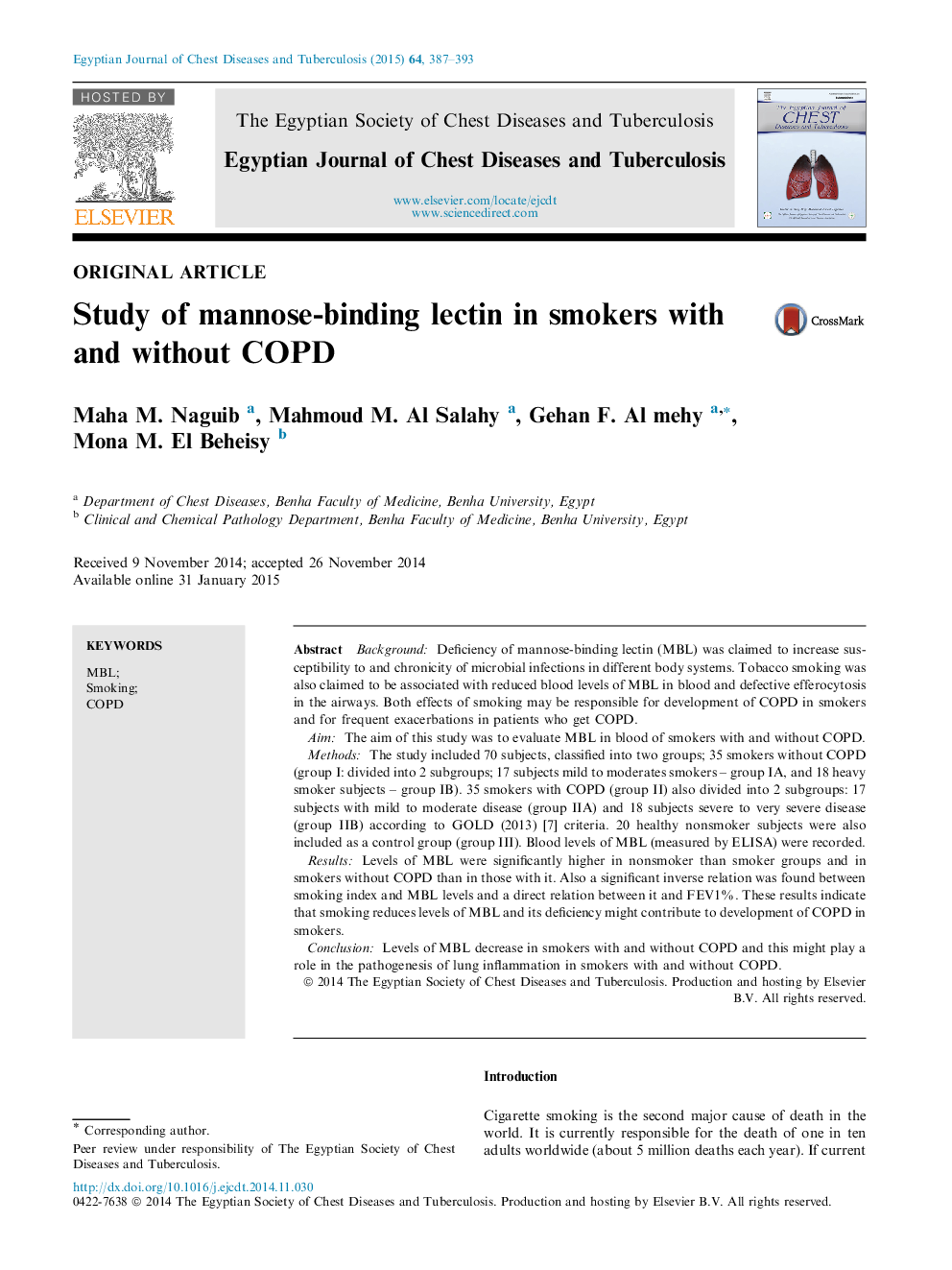| Article ID | Journal | Published Year | Pages | File Type |
|---|---|---|---|---|
| 3399983 | Egyptian Journal of Chest Diseases and Tuberculosis | 2015 | 7 Pages |
BackgroundDeficiency of mannose-binding lectin (MBL) was claimed to increase susceptibility to and chronicity of microbial infections in different body systems. Tobacco smoking was also claimed to be associated with reduced blood levels of MBL in blood and defective efferocytosis in the airways. Both effects of smoking may be responsible for development of COPD in smokers and for frequent exacerbations in patients who get COPD.AimThe aim of this study was to evaluate MBL in blood of smokers with and without COPD.MethodsThe study included 70 subjects, classified into two groups; 35 smokers without COPD (group I: divided into 2 subgroups; 17 subjects mild to moderates smokers – group IA, and 18 heavy smoker subjects – group IB). 35 smokers with COPD (group II) also divided into 2 subgroups: 17 subjects with mild to moderate disease (group IIA) and 18 subjects severe to very severe disease (group IIB) according to GOLD (2013) [7] criteria. 20 healthy nonsmoker subjects were also included as a control group (group III). Blood levels of MBL (measured by ELISA) were recorded.ResultsLevels of MBL were significantly higher in nonsmoker than smoker groups and in smokers without COPD than in those with it. Also a significant inverse relation was found between smoking index and MBL levels and a direct relation between it and FEV1%. These results indicate that smoking reduces levels of MBL and its deficiency might contribute to development of COPD in smokers.ConclusionLevels of MBL decrease in smokers with and without COPD and this might play a role in the pathogenesis of lung inflammation in smokers with and without COPD.
